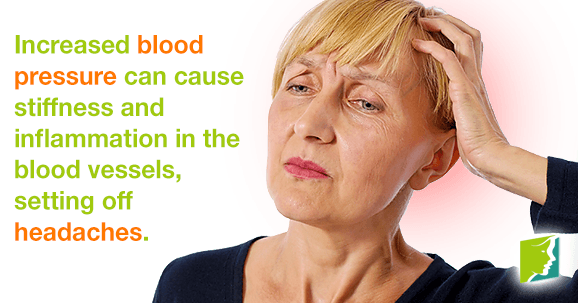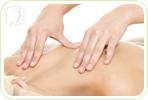High blood pressure - or hypertension - is a condition that should be taken seriously: as those who suffer from it have a higher risk of stroke, heart attacks, and kidney disease. High blood pressure is a term that's usually associated with aging and obesity, but the specifics of the condition, such as its symptoms and effects, are less understood. Keep reading to learn the facts about hypertension, discover why menopausal women are often affected by it, and how high blood pressure and headaches can be managed.
MYTH: Women Are More Prone to High Blood Pressure during Menopause.
FACT: Hormonal Changes Can Contribute to Hypertension.
Sometimes high blood pressure can be attributed to normal aging; as a person ages, their blood vessels become stiffer, which can cause hypertension. However, women approaching menopause are especially prone to the condition. During perimenopause, when a woman's hormone production alters in preparation for menopause, a series of changes are likely to take place in her body. The combination of hormonal imbalances and other resultant symptoms, such as stress, weight gain, and fatigue, can influence blood pressure and make hypertension more likely.
MYTH: Hypertension Has No Symptoms.
FACT: Headaches Are a Common Symptom of Hypertension.
While the symptoms of hypertension are often unnoticeable, increased blood pressure can cause stiffness and inflammation in the blood vessels. When this happens, the brain may block the nerve pathways, setting off headaches. These are usually tension headaches that consist of significant, but not debilitating, pain across the forehead or at the base of the skull, lasting for up to an hour.
MYTH: Stress Levels Are Linked to Blood Pressure
FACT: Relieving Stress Is Beneficial for Headaches and Blood Pressure
Finding a healthy outlet for stress and anxiety is an effective lifestyle method for controlling blood pressure, which can further help alleviate the tension associated with stress headaches. Regular stress relief essentially means taking an hour out of every day to do something relaxing and enjoyable, such as yoga, meditation, reading a book, or going out for a walk.
MYTH: Those with High Blood Pressure Should Avoid Exercise.
FACT: Exercise Can Combat Hypertension and Headaches.
Weight management plays a large part when it comes to managing high blood pressure, and regular aerobic exercise is important for this. Partaking in moderate-intensity activities, like swimming, cycling, and jogging, for 30 minutes every day also decreases the muscle tension and anxiety associated with the stress headaches and hypertension.
Although there is no definitive fail-proof cure for high blood pressure, it is usually - and effectively - managed through a combination of medication, dietary care, and lifestyle adjustments. These adjustments are essentially focused on following a healthy lifestyle: eating a balanced diet, doing plenty of exercise, cutting back on alcohol and salt consumption, and quitting smoking.
Sources
- Better Health Channel. (2014). Headaches and hormones. Retrieved May 2, 2014, from http://www.betterhealth.vic.gov.au/bhcv2/bhcarticles.nsf/pages/Headache_and_hormones
- Harvard Health Publications. (2013).High blood pressure a silent danger in postmenopausal women. Retrieved May 2, 2014, from http://www.health.harvard.edu/newsletters/
- Harvard_Womens_Health_Watch/2013/April/high-blood-pressure-a-silent-danger-in-postmenopausal-women
- Maas, A. & Franke, H. (2009). women's health in menopause with a focus on hypertension. Netherlands Heart Journal, 17(2), 68-72. Retrieved from http://www.ncbi.nlm.nih.gov/pmc/articles/PMC2644382/
- National Health Service UK. (2013). Headaches. Retrieved May 2, 2014, from http://www.nhs.uk/conditions/Headache/Pages/Introduction.aspx
- National Health Service UK. (2013).Hormone headaches. Retrieved May 2, 2014, from http://www.nhs.uk/Livewell/headaches/Pages/Hormonalheadaches.aspx
- National Institutes of Health. (2012). High blood pressure: MedlinePlus Medical Encyclopedia. Retrieved May 2, 2014, from http://www.nlm.nih.gov/medlineplus/ency/article/000468.htm




